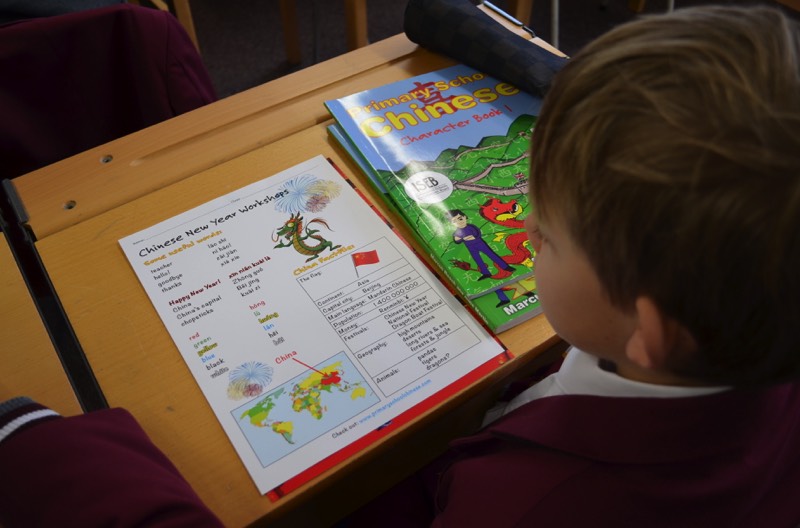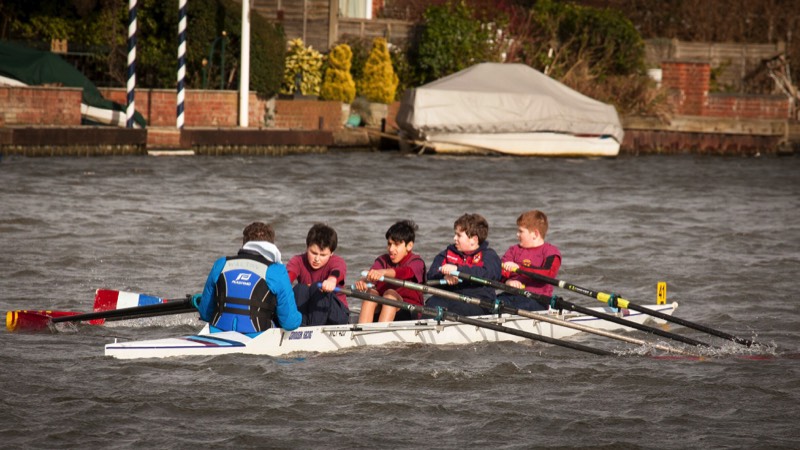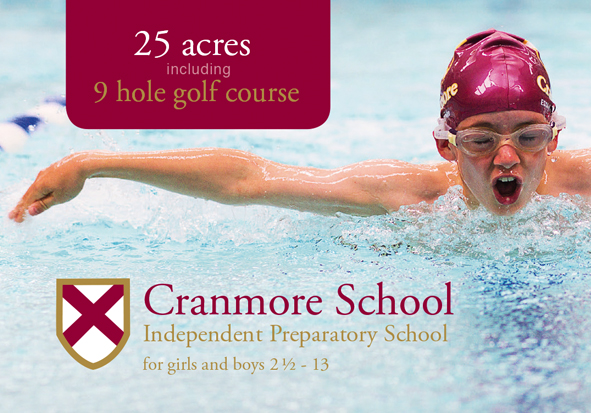EDUCATION
Surrey’s Premier Lifestyle Magazine
Why independence is good for the soul
Michael Connolly, headmaster of Cranmore School, reflects on the benefits provided by independent schools.

Independent schools are rarely out of the news.Occasionally it might be a tabloid story about some misdemeanour committed by a pupil, especially if he or she happens to have famous parents. Other articles appear which cite the considerable cost of independent education, particularly as fees have generally outstripped inflation during the last decade.
Unlike the maintained sector, independent schools have no set catchment area or natural intake each September. They have to market themselves strongly to actively recruit families within a highly competitive market. Nationally, about 7% of children attend an independent school, but the proportion is much higher in the south east, especially in London and Surrey.
It is widely known that the majority of independent schools are registered charities. This has been a political football over the years with some politicians arguing for the abolition of their charitable status. This view ignores the enormous saving to the public purse as a diminished independent sector would inevitably put more strain on local authorities which would need to find additional capacity in their own schools. Many also forget the enormous financial assistance which independent schools provide through scholarships and bursaries to thousands of pupils all over the country.
Unlike the maintained sector, independent schools have no set catchment area or natural intake each September. They have to market themselves strongly to actively recruit families within a highly competitive market. Nationally, about 7% of children attend an independent school, but the proportion is much higher in the south east, especially in London and Surrey.
It is widely known that the majority of independent schools are registered charities. This has been a political football over the years with some politicians arguing for the abolition of their charitable status. This view ignores the enormous saving to the public purse as a diminished independent sector would inevitably put more strain on local authorities which would need to find additional capacity in their own schools. Many also forget the enormous financial assistance which independent schools provide through scholarships and bursaries to thousands of pupils all over the country.
Another accusation is that independent schools are elitist and are bracketed with grammar schools. As far back as the 1960s there was a determination to ensure that comprehensive schools would be the only ones allowed. Anthony Crosland and, subsequently, Roy Hattersley were both unsuccessful in implementing this totalitarian educational regime.
The current educational market has become more varied with the proliferation of academies, many of which are sponsored by leading independent schools. However, it begs the question: why are so many families still willing to make a financial sacrifice to send their child to an independent school when academies are free? Clearly, the answer lies in the fact that parents recognise that their investment brings added value to their child’s education and represents good value for money. It is no surprise that boarding schools are undergoing a resurgence due to the demand from families based overseas who recognise that British education is world class in many respects.
A short browse of the website from any good independent school will quickly reveal how such schools do add value. The government has forced league tables on state schools and used narrow criteria in Ofsted inspections which have compelled state schools to focus on a narrow curriculum. Fortunately, independent schools do not suffer such constraints and are therefore able to offer greater breadth and depth. For example, at Cranmore School, pupils can study French, Spanish, Mandarin, Latin, Greek and Philosophy. There is also significant time given to Music, not just as an integral part of the curriculum, but the rich extra-curricular programme with choirs, various ensembles and a full-blown orchestra. There are remarkable opportunities to develop skills in sport at Cranmore where children can play team games such as rugby, hockey or cricket, and also join the swim squad, rowing squad or even the ski squad.
The current educational market has become more varied with the proliferation of academies, many of which are sponsored by leading independent schools. However, it begs the question: why are so many families still willing to make a financial sacrifice to send their child to an independent school when academies are free? Clearly, the answer lies in the fact that parents recognise that their investment brings added value to their child’s education and represents good value for money. It is no surprise that boarding schools are undergoing a resurgence due to the demand from families based overseas who recognise that British education is world class in many respects.
A short browse of the website from any good independent school will quickly reveal how such schools do add value. The government has forced league tables on state schools and used narrow criteria in Ofsted inspections which have compelled state schools to focus on a narrow curriculum. Fortunately, independent schools do not suffer such constraints and are therefore able to offer greater breadth and depth. For example, at Cranmore School, pupils can study French, Spanish, Mandarin, Latin, Greek and Philosophy. There is also significant time given to Music, not just as an integral part of the curriculum, but the rich extra-curricular programme with choirs, various ensembles and a full-blown orchestra. There are remarkable opportunities to develop skills in sport at Cranmore where children can play team games such as rugby, hockey or cricket, and also join the swim squad, rowing squad or even the ski squad.

Another important factor which has made the national press is the rapid progress of pupils in independent schools. In some cases it has been suggested they are two years ahead of their peers in the maintained sector. This is sometimes attributed to having smaller classes and better resources. However, upon closer examination, it is clear that high expectations and the quality of teaching have a significant part to play too.
In the end, the clue to the success of independent schools is in the title – they are truly ‘independent’ and enjoy an autonomy which means they are not subjected to the vagaries of central government. Sir Michael Wilshaw, Ofsted chief, admitted as much back in 2013 when he addressed a conference for independent school heads. As state schools become increasingly more autonomous, Sir Michael suggested, they could learn much from the long experience of independent schools at running their own affairs.
In the end, the clue to the success of independent schools is in the title – they are truly ‘independent’ and enjoy an autonomy which means they are not subjected to the vagaries of central government. Sir Michael Wilshaw, Ofsted chief, admitted as much back in 2013 when he addressed a conference for independent school heads. As state schools become increasingly more autonomous, Sir Michael suggested, they could learn much from the long experience of independent schools at running their own affairs.
Finally, independent schools recognise that parents have a choice and it is vital to meet their expectations. Cranmore School epitomises the very best of independent education as described in the Good Schools Guide: “An all-round school maintaining high standards and impressive results from a non-selective intake, with so much on offer that every child can find something in which to succeed.”
essence info
Cranmore School has embarked on a programme of change progressing to full co-education for pupils aged two and a half to thirteen years. Children study the standard subjects as well as a stimulating curriculum including French, Mandarin, Spanish, Latin, Greek and a wide selection of extra-curricular activities. The excellent facilities include a golf course, swimming pool, fitness suite and also a Forest School so that the youngest pupils from the nursery onwards can experience real ‘outdoors education’.Telephone: 01483 280340
Website: www.cranmoreprep.co.uk



